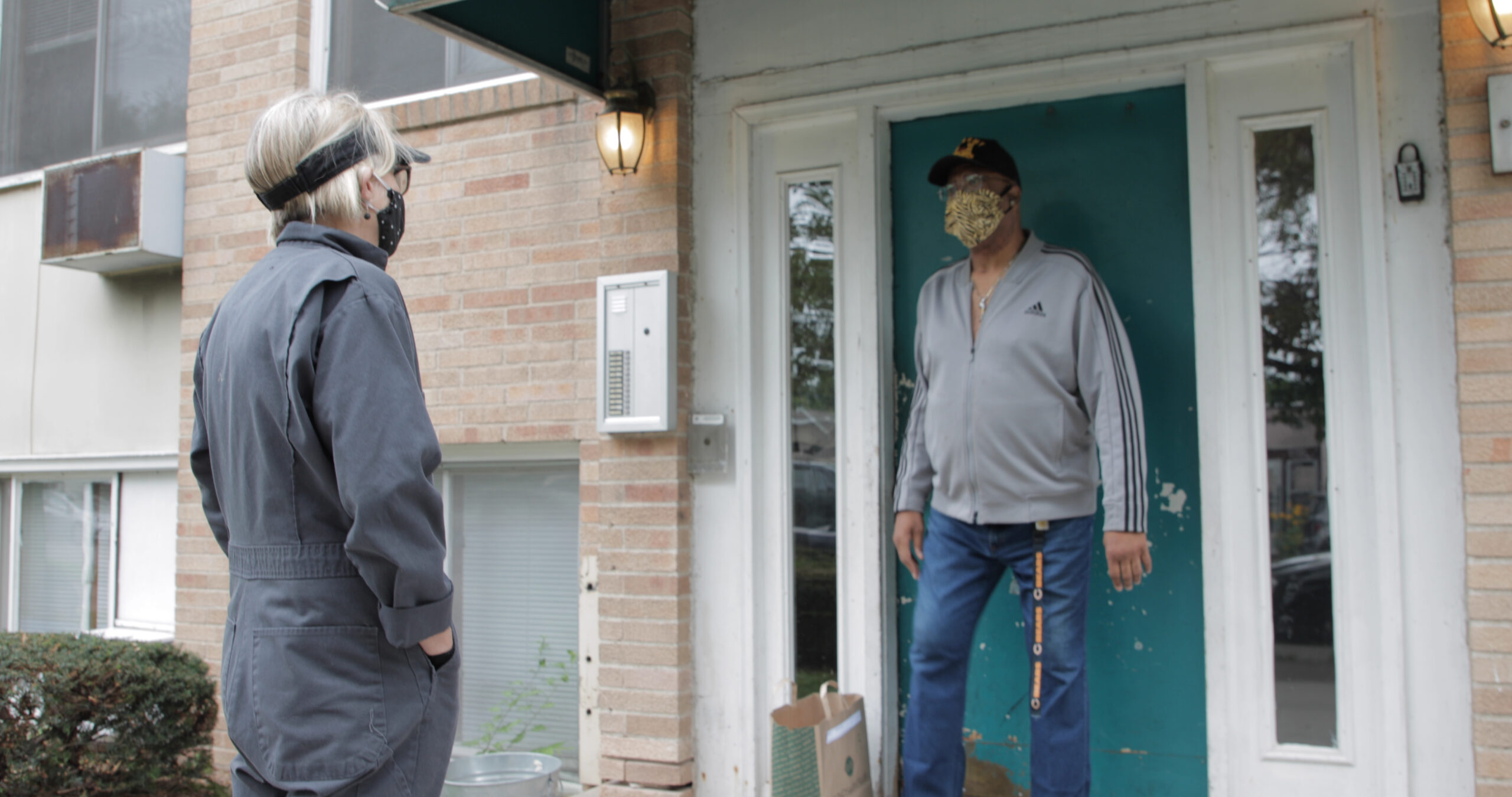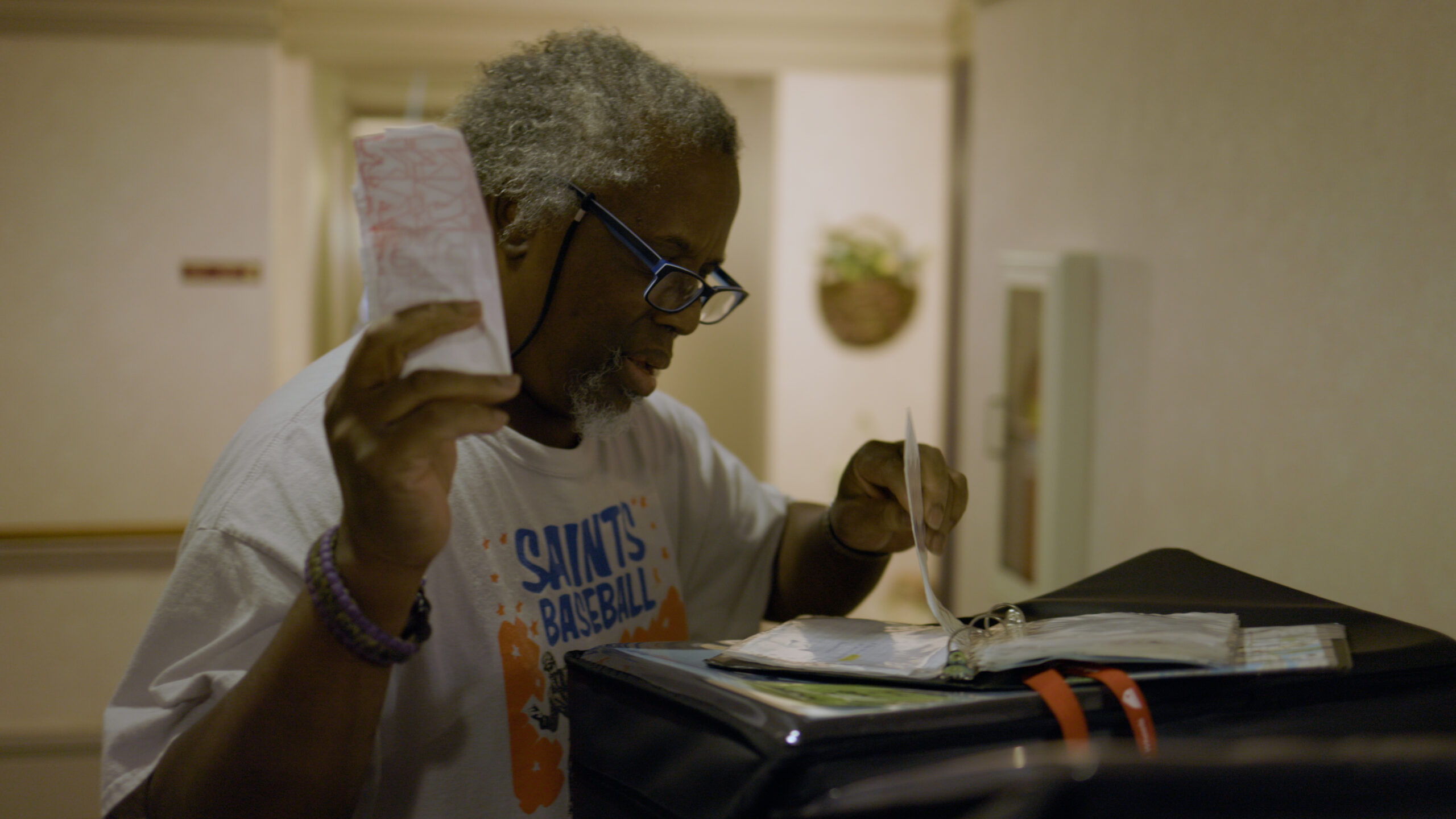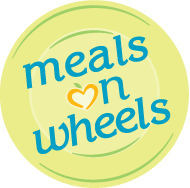New program will increase access to Meals on Wheels for veterans

A new program is allowing Meals on Wheels to increase service to those who have served their country. Funding approved by the Minnesota Legislature last year aims to provide healthy, home-delivered meals to veterans who aren’t currently receiving them. In addition to receiving nutritious meals prepared at a local kitchen, the program will also help veterans make connections with their neighbors.
Meals on Wheels looks forward to serving anyone who could benefit from this program. To be eligible, veterans must be:
- age 60+ or,
- experiencing food insecurity or,
- unable to obtain food because of a medical or mental health condition
Veterans interested in receiving meals should call us at 612-623-3363 to find out more and enroll.
A resource for veterans transitioning out of homelessness
Derek Holt, homeless programs supervisor at the Minnesota Department of Veterans Affairs, says receiving Meals on Wheels could make a tremendous difference for veterans who are transitioning to permanent housing. Holt oversees a program that has helped provide permanent housing to more than 3,300 veterans since 2015.
The program not only focuses on finding veterans housing, but providing resources and support to recently housed individuals that helps them remain in their new homes. Holt’s team relies on the Minnesota Homeless Veterans Registry to track and coordinate efforts to find housing and provide resources to homeless veterans.
“One of the things we know about transitioning into permanent housing is that it’s important to make sure the person transitioning has basic resources when they get in there,” says Holt. “People are moving to new communities so they don’t know where resources are for food.”
Holt says an underestimated challenge for people transitioning to permanent homes is managing the sudden expenses of having to furnish their home, including cookware and stocking the kitchen. There’s also the pressure of setting up utilities and the associated payments, as well as anxiety about being able to stay in their new homes long-term.
“It’s traumatic to go from homelessness to housing,” says Holt. “It’s a celebratory and a life-saving event, but it can still be traumatic. They often don’t feel like they have the ability to maintain this.”
Holt said that for a person entering permanent housing, just knowing that a healthy, prepared meal will be coming their way each day would provide a major boost. When someone doesn’t have to worry about where their next meal is coming from, it’s much easier to manage the psychological aspect of a significant life transition and its associated challenges.
Providing opportunities for social connection among veterans

The new partnership with the Department of Veterans Affairs will also include efforts to recruit veterans to deliver meals to others who have served. Holt said the connection veterans share makes it more likely that they’d be willing to ask for help if they were struggling with something.
“If you have someone who has a common theme and a common story, it becomes a little more comfortable to share information,” says Holt. “The trust would be higher and you’d get more from that weekly touchpoint.”
Holt said that for the folks he works with, regular contact with neighbors, however brief, plays a huge role in them getting connected with resources in the community. It also reduces feelings of loneliness. More than half of veterans reported feeling lonely sometimes or often, with one in five saying they felt lonely often, according to a 2021 study published in the American Journal of Geriatric Psychiatry.
Andre Minor is a U.S. Navy Veteran and beloved volunteer of 15 years for Hastings Meals on Wheels. When he started delivering meals in 2008, he was looking for ways to become more connected to his community after recently moving to a Hastings veterans home from California.
“It helps me get out of the home,” says Minor. “The feeling of helping other people gives me satisfaction. I feel their appreciation, and it’s pretty cool.”
Minor would welcome the opportunity to deliver to fellow veterans and agrees that the special bond shared between veterans makes it easier for them to relate to one another. “The commonality there probably would be very significant,” says Minor. “Traumatic stress, or whatever it is, I think it’s helpful to share the same stories.”
Our hope is that through this program, Meals on Wheels can be part of the fabric of resources that help more veterans live at home and stay connected to their neighbors. Those interested in supporting this effort can learn more about volunteering with Meals on Wheels here.

